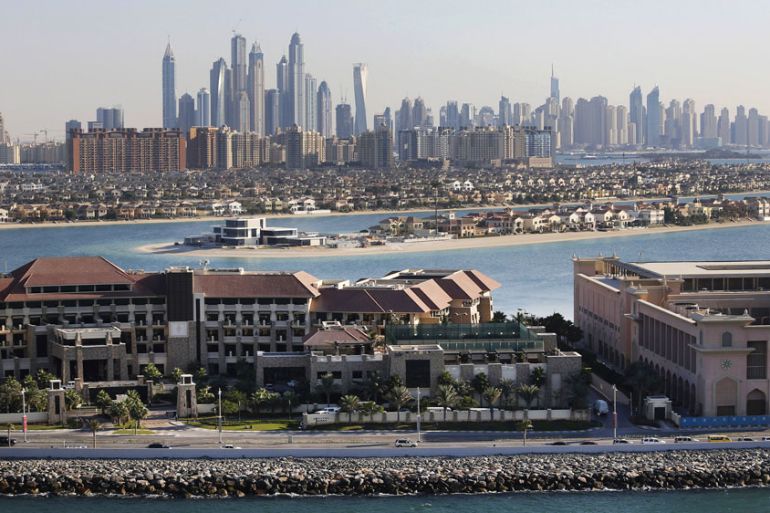EU puts UAE, Bahrain and Tunisia on tax haven blacklist
The three countries were among seventeen that fail to comply with European Union tax standards.

The European Union (EU) has released a blacklist of 17 countries, including the United Arab Emirates (UAE), Bahrain and Tunisia, which it says are tax havens.
The bloc said on Tuesday that the countries on the list, made public after months of screening of tax policies, were not doing enough to deal with offshore avoidance schemes.
Keep reading
list of 4 itemsCanada’s Trudeau government asks rich to pay more in pitch to Gen Z
The Take: How much of Americans’ tax money funds war?
Spanish prosecutors accuse Real Madrid manager Carlo Ancelotti of tax fraud
They will face restrictions in receiving EU funding and investments from the European Investment Bank. The bloc’s member states can also decide on imposing their own sanctions, based on the blacklist.
The EU said in a statement on Tuesday that the goal of the list is to ensure its partners adhere to the same tax standards as itself, calling it “a key victory for transparency and fairness”.
However, Pierre Moscovici, the EU commissioner for economic and financial affairs, taxation and customs, noted that non-compliant countries must face harsher penalties.
“Blacklisted jurisdictions must face consequences in the form of dissuasive sanctions, while those that have made commitments must follow up on them quickly and credibly,” he said.
“There must be no naivety: promises must be turned into actions. No one must get a free pass,” he added.
“We must intensify the pressure on listed countries to change their ways.”
Three components
The investigation into the tax havens began in September 2016, eventually leading to a list of 17 countries: American Samoa, Bahrain, Barbados, Grenada, Guam, South Korea, Macau, Marshall Islands, Mongolia, Namibia, Palau, Panama, Saint Lucia, Samoa, Trinidad and Tobago, Tunisia and the UAE.
Several other jurisdictions, including the Bahamas, Antigua and Barbuda and the British Virgin Islands failed to comply with the standards set by the EU as well, but got a temporary pass because they were hit hard by hurricanes this year, and may not currently have the infrastructure to deal with the problems.
They have until early 2018 to deal with the issues, the EU’s statement said.
The list was made on the basis of three main components: tax transparency, fair tax competition and implementation of Base Erosion and Profit Shifting (BEPS), which is a way of battling tax avoidance created by the OECD.
The EU will continue to monitor and, if needed, to update the blacklist of tax havens, it said.
The bloc did not assess its own member states. It justified this by saying the list is specifically focused on external threats, adding that internal procedures are already in place to make sure tax policy within the bloc is fair and transparent.
Eurodad, the European Network on Debt and Development, criticised the EU for the lack of will to look at its own member states.
“If EU governments really wanted to get rid of tax havens, they should be open about the fact that several EU Member States, such as Luxembourg, Ireland and the Netherlands, also have to fundamentally change their behaviour. Unless we put a stop to all tax havens, the problem is just going to move from one place to the other,” Eurodad wrote in reply to the EU decision.
‘Grey-list’
Besides the 17 countries that are placed on the blacklist, 47 countries were placed on a so-called “grey-list”. Among them are Switzerland, Morocco, Turkey, Qatar, Thailand and Hong Kong.
These 47 countries committed to making changes to their tax policy in 2018, and 2019 for developing countries, in an attempt to comply with EU regulations.
The issue has come under scrutiny in the past years, following the release of the Panama Papers and Paradise Papers documents, which show how corporations and individuals avoid paying taxes through tax havens such as Panama, the Bahamas, and the US Virgin Islands.
In its statement, the EU said it aims to “raise the level of tax good governance globally and help prevent the large-scale tax abuse exposed in recent scandals such as the Paradise Papers”.